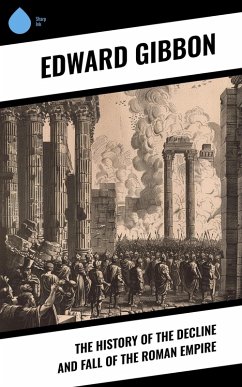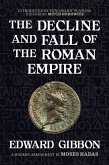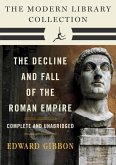Edward Gibbon's seminal work, "The History of the Decline and Fall of the Roman Empire," intricately chronicles the fall of one of history's most powerful empires through a meticulously crafted narrative that spans centuries. Reflected in Gibbon's elegant and eloquent prose is an Enlightenment sensibility, blending rigorous historical analysis with sweeping philosophical reflections. The book is divided into multiple volumes, which collectively examine not only political events but also cultural, social, and economic factors that contributed to the gradual disintegration of Rome, ultimately highlighting the interplay between decadence and virtue in human societies. Gibbon, a child of the Enlightenment and an ardent admirer of classical antiquity, drew upon a wealth of classical sources and contemporary scholarship to produce his magnum opus. His experiences in the tumultuous political climate of 18th-century Europe, coupled with his extensive travels across Europe and the Mediterranean, informed his views on civilization, decline, and the cyclical nature of history. Gibbon's critical perspective on religion's impact on civic life showcases his belief in rationality and secularism, setting a tone that was both revolutionary and controversial. For readers interested in history, philosophy, or the interplay of culture and power, Gibbon's work offers profound insights that remain relevant today. Its depth and scholarship make it a foundational text for understanding not only the Roman Empire's legacy but also the broader human experience of decline and renewal. Engaging with Gibbon's narrative is essential for anyone seeking to grasp the complexities of history's most compelling saga.
Dieser Download kann aus rechtlichen Gründen nur mit Rechnungsadresse in A, B, BG, CY, CZ, D, DK, EW, E, FIN, F, GR, HR, H, IRL, I, LT, L, LR, M, NL, PL, P, R, S, SLO, SK ausgeliefert werden.









